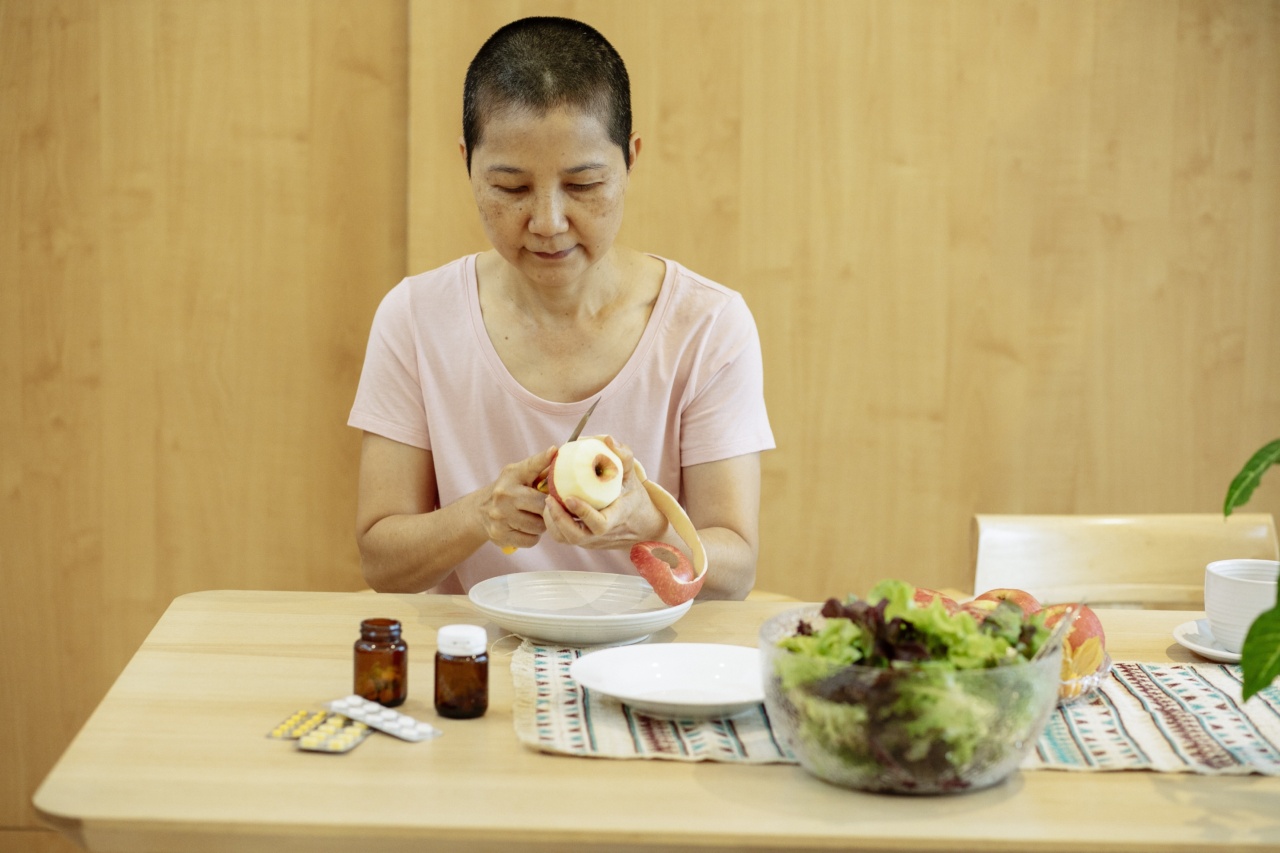Cancer is a devastating disease that affects millions of people worldwide. It is characterized by the uncontrolled growth and spread of abnormal cells in the body.
While there are various treatment options available, such as chemotherapy and radiation, researchers are constantly looking for new and innovative ways to combat this disease. One area of interest is the potential synergistic effects of vitamin C and fasting on cancer.
The Role of Vitamin C in Cancer Treatment
Vitamin C, also known as ascorbic acid, is a powerful antioxidant that plays a crucial role in the body’s immune system. It helps protect cells from damage caused by harmful molecules called free radicals.
Additionally, vitamin C has been shown to have anti-inflammatory properties and may enhance the effectiveness of certain cancer treatments.
Several studies have suggested that high-dose vitamin C therapy may have anticancer effects. When administered intravenously in high concentrations, vitamin C can produce levels in the blood that are toxic to cancer cells.
This treatment, known as high-dose vitamin C therapy, has shown promise in clinical trials for various types of cancer, including lung, pancreatic, and ovarian cancers.
The Benefits of Fasting for Cancer Patients
Fasting is the act of abstaining from consuming food for a specific period of time.
While fasting has been practiced for centuries for religious and cultural reasons, recent research has uncovered potential health benefits, particularly for cancer patients.
One of the main benefits of fasting for cancer patients is its ability to sensitize cancer cells to chemotherapy and radiation.
Normal cells enter a protective state during fasting, which makes them more resistant to the toxic effects of these treatments. On the other hand, cancer cells continue to rapidly divide and grow, making them more vulnerable to the effects of chemotherapy and radiation.
Fasting also has the potential to reduce the side effects of cancer treatments. It can help protect healthy cells from damage, thereby minimizing the toxic effects of chemotherapy and radiation.
Additionally, fasting may help improve the overall quality of life for cancer patients by reducing symptoms such as nausea, vomiting, and fatigue.
The Synergistic Effects of Vitamin C and Fasting on Cancer
While both vitamin C therapy and fasting have shown promise in cancer treatment individually, researchers are now exploring the potential synergistic effects of combining these two approaches.
One theory is that fasting prior to high-dose vitamin C therapy may enhance the anticancer effects of vitamin C. Fasting induces a state of metabolic stress in the body, which can trigger various cellular responses aimed at protecting healthy cells.
By fasting before receiving high-dose vitamin C therapy, cancer patients may be able to sensitize their cancer cells to the effects of vitamin C, leading to increased cancer cell death.
Additionally, fasting during vitamin C therapy may help reduce the side effects associated with high-dose vitamin C treatment. Fasting has been shown to promote cellular repair mechanisms and enhance the body’s ability to eliminate toxins.
By fasting during vitamin C therapy, cancer patients may be able to mitigate the toxic effects of high levels of vitamin C in the blood.
Furthermore, combining vitamin C and fasting may have the potential to boost the immune system’s response to cancer.
Vitamin C is known to enhance the function of various immune cells, such as T-cells and natural killer cells, which play a crucial role in identifying and destroying cancer cells. Fasting, on the other hand, has been shown to stimulate the production of new immune cells and improve immune system function. By combining these two approaches, researchers hope to unleash the full potential of the immune system in fighting cancer.
Conclusion
In conclusion, the synergistic effects of vitamin C and fasting on cancer hold promise as a potential complementary approach to traditional cancer treatments.
Preliminary research suggests that fasting prior to and during high-dose vitamin C therapy may enhance the anticancer effects of vitamin C, while also reducing the toxic side effects associated with this treatment. Additionally, combining vitamin C and fasting may boost the immune system’s ability to identify and destroy cancer cells.
However, further research is needed to fully understand the mechanisms underlying these synergistic effects and to optimize dosing regimens for maximum efficacy.





























